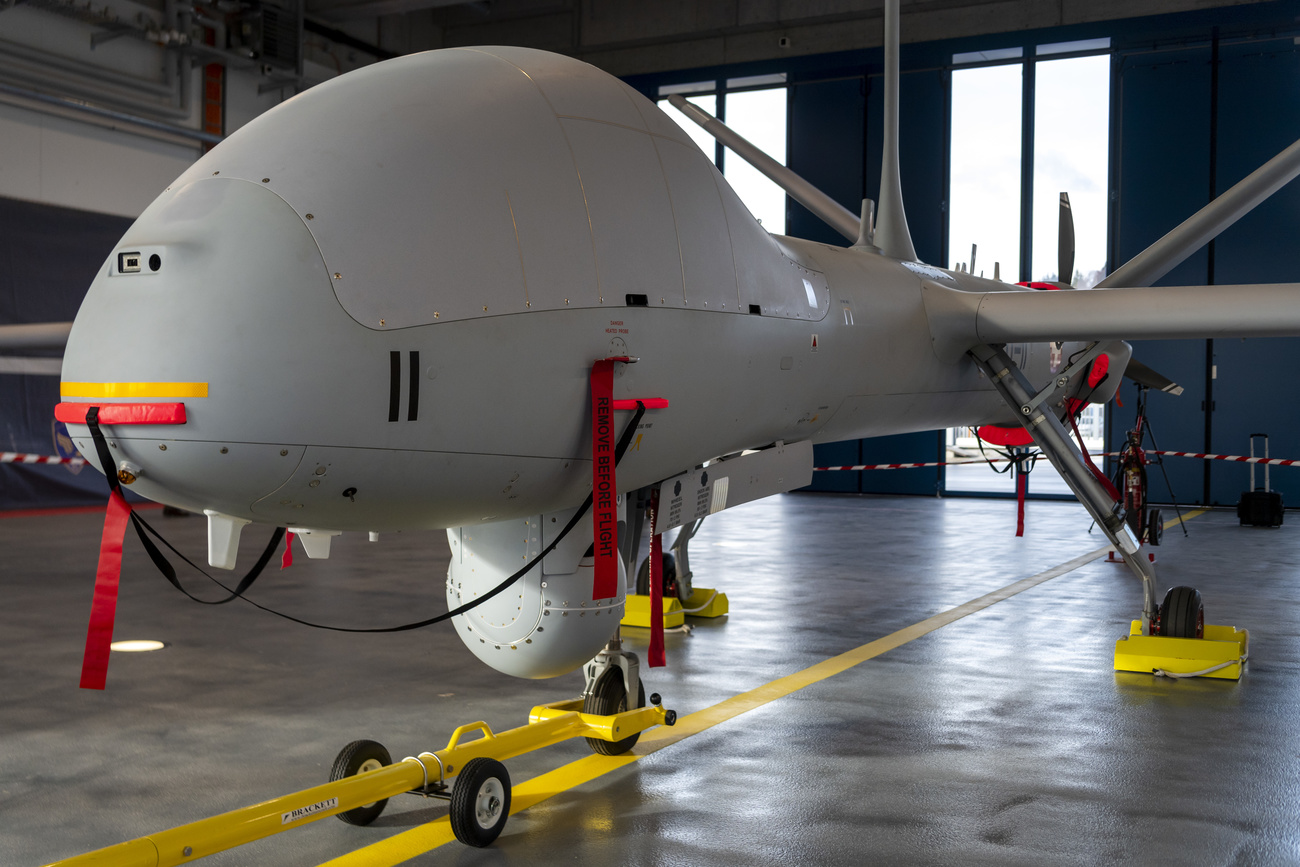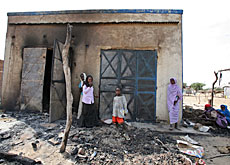Prosecutor has Darfur masterminds in sights

Peace will only be possible in Sudan's Darfur region if those responsible for the ongoing conflict are brought to justice, argues the International Criminal Court's (ICC) prosecutor.
swissinfo talked to Luis Moreno-Ocampo, who has vowed to target the most senior people behind the violence, ahead of a debate on Darfur held on the sidelines of the International Film Festival on Human Rights in Geneva.
In February 2007, the ICC indicted two Sudanese officials for war crimes relating to Darfur – Ahmad Harun, former interior minister and current minister for humanitarian affairs, and Ali Kushab, leader of the pro-government Janjaweed militia.
Yet Sudan says the ICC has no jurisdiction and refuses to hand over the suspects. Harun was subsequently put in charge of government refugee camps and has been appointed to the group monitoring the deployment of the hybrid African Union-United Nations peacekeeping force.
In December 2007, Ocampo told the Security Council that as long as Harun remained free in Khartoum, there would be no comprehensive solution in Darfur.
The ICC is also finalising two new Darfur investigations for the end of 2008. One will look at the alleged responsibility of Sudanese government officials for attacks on civilians and another at rebel attacks on humanitarian workers and UN peacekeepers.
swissinfo: How does recent violence in Darfur compare with what happened in the past?
Luis Moreno-Ocampo: In 2003-2004 there was massive and open armed attacks against civilians in villages. This has changed. What’s happening today in Darfur is not chaos or inter-tribal clashes. Members of the government are making concerted attempts to attack displaced people.
Janjaweed militias surround the camps attacking the villagers when they leave. Security forces running the camps are arresting leaders, and humanitarian assistance and peacekeeping operations are being hindered. In addition, members of the government are involved in resettling new people on land that belonged to these displaced people.
We are looking at who is behind all this. I know that Ahmad Harun is now the minister for humanitarian affairs and is involved, but he is not alone.
swissinfo: What makes you so sure that Harun and Kushab will be arrested and transferred to the Hague?
L.M-O.: This is a trend. I am Argentinian; I saw Jorge Rafael Videla [head of the junta] take power in Argentina and nine years later he was prosecuted; the same with Pinochet, Taylor and Milosevic. The era of impunity is over.
To be indicted by the ICC is very serious. I would like Harun to be arrested quickly, but the court is a permanent one and it can wait. The problem is the victims. Harun is still active. It’s not just about punishing him; we need to stop his activities.
If the person supposed to be protecting you is attacking you, how can you be protected? That’s the huge problem we have in Darfur.
swissinfo: Do you have the support of the international community to break this cycle?
L.M-O.: No. There are different views and no common position. It’s a problem. [But] things are improving. At my last Security Council briefing many states requested Harun’s arrest, but the international community’s lack of consensus and collective action are part of the problem.
swissinfo: So the end of the conflict is still very far away for the Darfur people?
L.M-O.: I believe we are in a new situation in which we have information about the crimes and we have to figure out how the international community can articulate itself.
I’m sure we can do better. My latest investigations will have a stronger base. But the other states have to make clear that the law must be respected. States are facing a new challenge. It’s not just about financing the ICC, but giving active support and requesting Harun’s arrest. Some of them need to change their outlook; otherwise people are going to die. What are at stake are the lives of 2.5 million people.
swissinfo, Simon Bradley in Geneva
In 2003, the member states of the International Criminal Court elected Argentinean Luis Moreno-Ocampo as the court’s first prosecutor.
Before that, Moreno-Ocampo had been involved in his homeland in prosecutions of top military commanders for mass killings and other large-scale human rights abuses between 1984 and 1992.
He was the assistant prosecutor in the 1984-1985 “Military Junta” trial against nine senior commanders, including 3 former heads of state, accused of masterminding the “dirty war”, and other cases of human rights violations by the Argentine military. After six months of public hearings, a panel of six judges convicted 5 of the accused,
He also took part in the case against army commanders accused of malpractice during the Falklands war, as well as in dozens of major cases of corruption.
In 1992, Moreno-Ocampo resigned and established a private law firm that specialises in corruption control programs for large firms and organisations, criminal and human rights law.
Just over five years since war broke out in Darfur, the situation remains grim. Peace talks have failed to get off the ground, only 9,000 of the 26,000-strong hybrid United Nations-African Union peacekeeping mission have been deployed and two-thirds of the region’s population are dependent on the world’s largest aid operation.
The conflict, which has claimed over 200,000 lives and displaced 2.5 million people in Sudan and 400,000 into Chad, has become more complex and seems to have entered a new phase. There has been an upsurge in violence in West Darfur in recent weeks as government forces carried out a series of coordinated attacks using air power and ground forces in an attempt to clear the area of rebel fighters.
On Tuesday the United Nations Security Council expressed its “profound concern” at the recent violence and worsening humanitarian situation in Darfur. Russia called on council members to consider sanctions against rebel groups challenging peace efforts.
The council urged the Sudanese government and all rebel groups to observe a cease-fire and respect international law. It also called for “the speediest possible deployment” of a 26,000-strong peacekeeping force in Darfur, whose main mission is to protect civilians.

In compliance with the JTI standards
More: SWI swissinfo.ch certified by the Journalism Trust Initiative













You can find an overview of ongoing debates with our journalists here . Please join us!
If you want to start a conversation about a topic raised in this article or want to report factual errors, email us at english@swissinfo.ch.